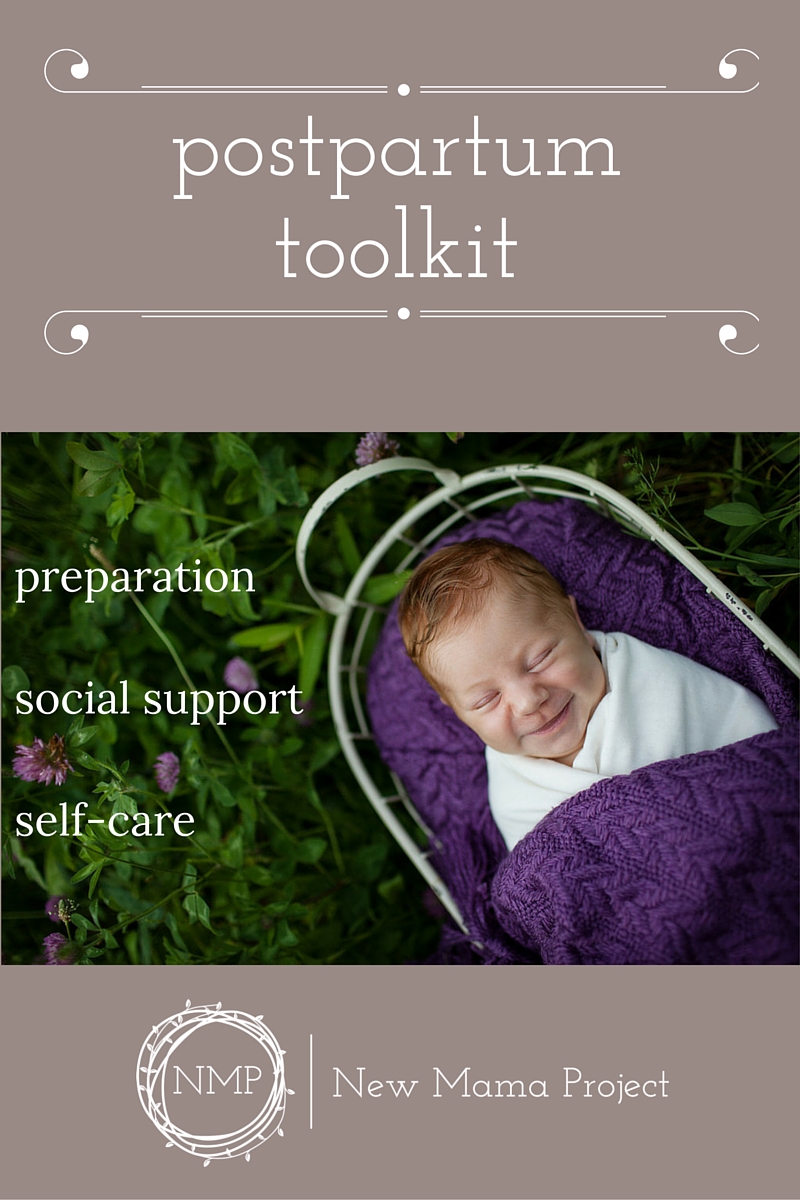I read through the Social Supports Guide the day it showed up in my inbox, and it helped me realize I was silently relying on my husband to do things he’s not necessarily most helpful doing, while forgetting about the help he does provide. It also prompted me to call in my mom for a few days; she came and stayed with me, helped get the house somewhat in order, figure out simple meal plans, and gave me a much needed ear to listen and shoulder to cry on. After a few days with my mom as an extra support, I feel much much better and surprisingly more in tune with myself, my baby and my husband. Sleeping is getting better as baby is giving us longer nighttime stretches, and I spent the weekend thinking about simplifying my daily load so I have room to breathe (and sleep) when baby is napping.
~ Emily, mama of an 8-week-oldThe postpartum time period is hard. You are:
recovering from giving birth
adjusting to adding another person to your family
consumed with caring for and feeding your newborn
experiencing dramatic shifts in your hormones
trying to make sense of your identity shift as you move into motherhood
We believe social support and self-care are the two pillars of postpartum wellness.

What will I get?
Interactive Social Supports Guide: We created this guide to help you figure out who to ask for social support, what to specifically ask for, and how to ask for it. We walk you through the process of figuring out what social support looks like to you, and help you determine how to get it.
New Mama Self-Care Quiz: We’ve created questions to help you get a better understanding of what ideal self-care looks like for you. After taking the quiz, and reading through our self-care ideas, you’ll be able to create an individualized self-care plan that you can immediately incorporate into your postpartum days.
You’ll also get weekly newsletters from us with updates on our blog posts, more ideas for your postpartum transition, and encouragement that you are not alone.
Do I really need these resources?
We think so! Are you struggling (even just a little bit) with your postpartum adjustment? Do you have an inkling that you could use some help, but you’re not sure what help you need or how to get it? Do you wish you had a strong support system around you so that you could focus on resting and bonding with your baby? Do you feel like you don’t know who you can talk to when you’re having a tough day or don’t know where to look for reliable information? Do you put yourself last, often forgetting to eat until 1pm or getting so thirsty that you need that drink of water RIGHT NOW? Do you wonder when your next chance to do your favorite relaxing activity will be? Have you had 15 or 20 minutes all to yourself in the past few days? If any of this is familiar to you, we really believe you will benefit from using our resources.
I’ve got this. I don’t need help.
Having good social support and practicing effective self-care will significantly improve your postpartum adjustment and we think that every mother should experience her postpartum time with these pillars firmly in place. However, social support and self-care don’t usually just happen to the postpartum mom. You need to plan for them, learning how to access the type of social support that you need, and learning how to practice self-care, even when it might seem impossible. During your postpartum days, you’re hormones are shifting and you’re learning so many new things. It can be challenging to find the mental and emotional energy to even figure out what kind of help you need. That’s why we made these resources. They’ll give you a place to start. They’ll also encourage you that it’s OK, in fact it’s awesome, to ask for support. You don’t need to do this alone and you’re a strong mama for getting the support you need.
*New Mama Project is not intended to be a substitute for professional support if you are experiencing symptoms of a postpartum mood disorder. We hope to encourage you to start sharing your struggles and seek mental health support if you need it. If you think you might have symptoms of a postpartum mood disorder, please contact your care provider.
